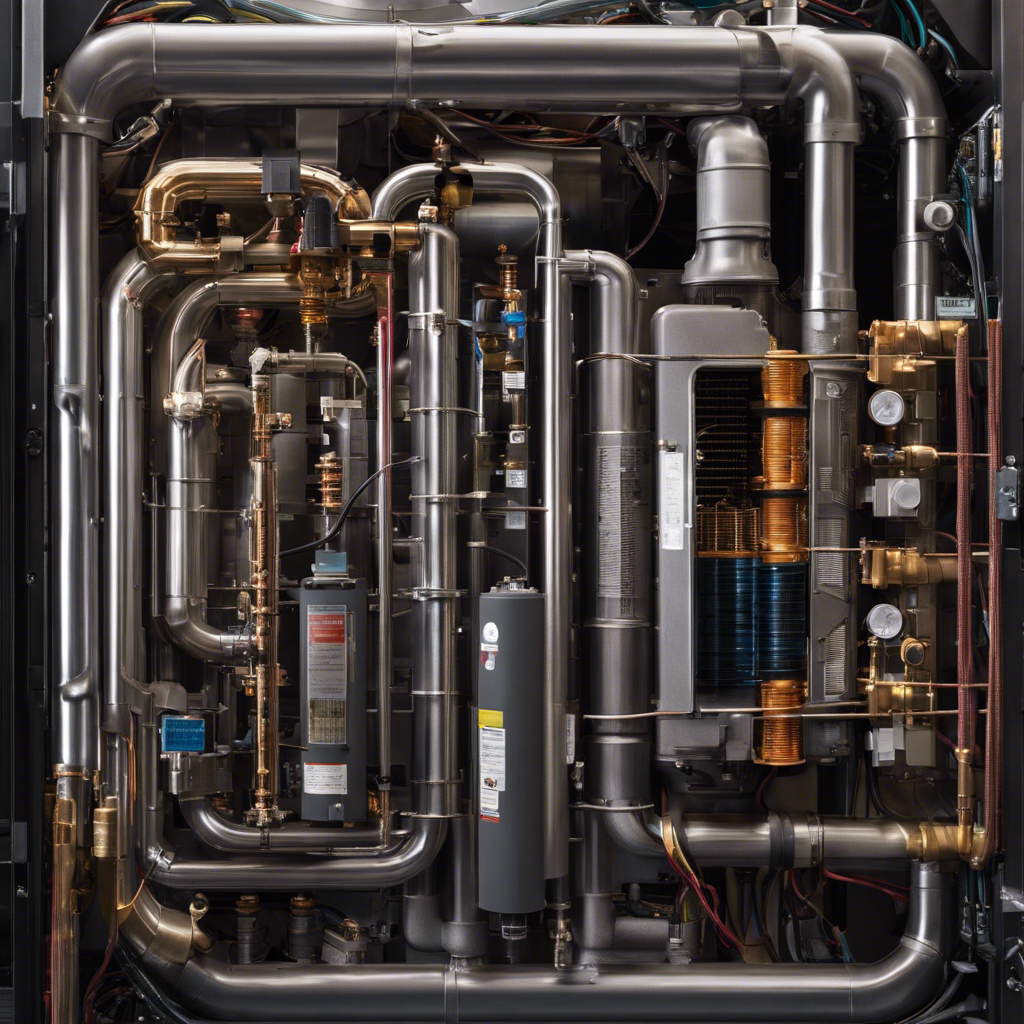In the pursuit of a comfortable and efficient living space, it is crucial to understand the lifespan of HVAC capacitors. These essential components store electricity and provide the necessary power for an air conditioner’s motor to start up. However, their longevity can be influenced by various factors, such as high humidity levels, continuous operation, and unexpected power surges.
Regular inspections and maintenance play a vital role in identifying when replacement is necessary. Especially in regions with high humidity, like Florida, capacitors may need replacement every 10-15 years. To ensure proper installation and prevent potential hazards, it is imperative to have capacitors replaced by professional HVAC technicians.
By adhering to these practices, homeowners can effectively extend the lifespan of their HVAC capacitors and promote the longevity of their cooling systems.
Key Takeaways
- Environmental conditions like heat and humidity can accelerate capacitor wear and tear.
- Voltage fluctuations can stress capacitors and lead to faster degradation.
- Regular maintenance and inspection, including cleaning and tightening connections, can prevent issues that may cause capacitor failure.
- Installing surge protectors safeguards capacitors from voltage spikes, extending their lifespan.
Average Lifespan of HVAC Capacitors
The average lifespan of HVAC capacitors ranges between 5 and 20 years, depending on various factors such as environmental conditions, usage, and maintenance.
HVAC capacitors are essential components of an air conditioning (AC) system, as they store and release electrical energy to run the motor and compressor.
Over time, capacitors can deteriorate due to factors like high humidity levels, continuous usage, and lack of proper maintenance. In hot and humid climates like Florida, where AC units run constantly, capacitors may need replacement every 10-15 years.
Signs of a failing capacitor include the AC unit not cooling or taking longer to start, strange noises, or the unit shutting off unexpectedly.
Regular maintenance by a professional can help identify these signs early and prevent premature failure. By ensuring proper maintenance and addressing any issues promptly, the lifespan of HVAC capacitors can be extended, saving homeowners from costly repairs or replacements.
Factors Influencing Capacitor Lifespan
Factors such as environmental conditions, usage patterns, and maintenance practices significantly impact the lifespan of HVAC capacitors.
Environmental factors such as heat and humidity can accelerate the wear and tear on capacitors, leading to premature failure. Voltage fluctuations can also stress the capacitors, causing them to degrade faster.
Additionally, the frequency of air conditioner usage can affect the lifespan of the capacitors. Constant use puts more strain on the capacitors, reducing their longevity.
Proper installation of the HVAC system in a suitable environment can help mitigate these factors and prolong capacitor life. Regular maintenance and inspection, including cleaning and tightening connections, can prevent issues that may lead to capacitor failure.
Signs of a Failing Capacitor
One common sign of a failing capacitor in an HVAC system is a buzzing, humming, or whining noise coming from the outdoor unit. This noise is often caused by electrical arcing within the capacitor, which indicates that it is no longer functioning properly.
Another sign of a failing AC capacitor is when the outdoor fan does not run properly or does not run at all. This can lead to poor airflow and reduced cooling performance.
In addition, a failing capacitor may cause the AC system to cycle on and off more frequently, as it struggles to maintain the desired temperature.
If you notice that your AC system is not producing cold air or if you detect a burning smell coming from the unit, it could be a sign that a capacitor replacement is necessary.
Taking proactive measures such as regular maintenance by an HVAC technician can help identify and address failing capacitors before they cause further damage. Remember, capacitors may be a small but mighty part of air conditioning systems, and keeping an eye out for signs of a failing capacitor can help prevent costly repairs and ensure optimal performance.
Extending the Lifespan of HVAC Capacitors
A key aspect for extending the lifespan of HVAC capacitors is proper maintenance and regular inspections. By ensuring that your air conditioning system is well-maintained, you can maximize the longevity of your capacitors.
Regular maintenance includes keeping the system clean and free of dirt, dust, and debris, as these can cause overheating and damage to the capacitors. Installing a surge protector can also help protect the capacitors from voltage spikes, further extending their lifespan.
Additionally, addressing potential issues early on, such as starting difficulties or strange noises, can prevent further damage and costly repairs. By taking these measures, you can ensure the efficient operation of your air conditioner and prolong the lifespan of the capacitors that release electrical energy to keep your home cool.
This, in turn, contributes to the overall lifespan of the air conditioning system’s compressor and fan.
When to Replace HVAC Capacitors
To ensure the optimal functioning of your HVAC system, it is crucial to know when it is time to replace the capacitors. This was discussed in the previous subtopic regarding extending their lifespan through proper maintenance and regular inspections.
While the lifespan of HVAC capacitors can vary, ranging from 5 to 20 years, it is important to be aware of warning signs that indicate a failing capacitor. Such signs include longer startup time, strange noises, lack of airflow, and inadequate cooling of the home.
If you observe any of these symptoms, it is recommended to contact an HVAC professional immediately for a thorough inspection. Prompt replacement of a failing capacitor can help prolong the lifespan of your AC, save money on energy bills, and prevent further damage to the outdoor unit.
Regular routine maintenance, along with professional assistance, is essential in ensuring the longevity and efficient performance of your HVAC system.
Frequently Asked Questions
What Is the Life Expectancy of a HVAC Capacitor?
The life expectancy of an HVAC capacitor is typically between 5-20 years, with an average lifespan of 10 years. Factors such as high humidity, constant usage, and power surges can impact the lifespan. Regular maintenance and inspections are important for identifying issues and extending lifespan.
How Can I Extend the Life of My AC CapACitor?
To extend the life of your AC capacitor, regular maintenance is key. This includes cleaning and inspecting the capacitor, upgrading to a higher quality capacitor, testing regularly, and protecting against power surges.
When Should I Replace My HVAC Capacitor?
Signs of a failing HVAC capacitor include longer startup times, unusual noises, and lack of airflow. Regular maintenance is important for identifying when replacement is needed. Replacing a faulty capacitor improves system efficiency and longevity.
How Do I Know if My AC CapACitor Is Bad?
Common signs of a faulty AC capacitor include delayed cooling cycle, random shutdowns, failure to start, buzzing or humming noises, and running without dispensing cool air. Troubleshooting tips and DIY testing methods can help diagnose the issue. Regular maintenance and understanding the causes of capacitor failure are crucial for preventing damage. Capacitor replacement options, misconceptions, and the pros and cons of professional vs. DIY replacement should be considered. Additionally, extreme weather conditions can lead to capacitor damage, so preventative measures should be taken.
Conclusion
In conclusion, HVAC capacitors typically have a lifespan of 5-20 years, but factors like high humidity, constant use, and power surges can shorten their lifespan. Regular inspections and maintenance are important for identifying when replacement is needed.
In Florida, capacitors may need replacement every 10-15 years due to the high humidity. It is crucial to have capacitors replaced by a professional HVAC technician to ensure proper installation and prevent any potential dangers.


